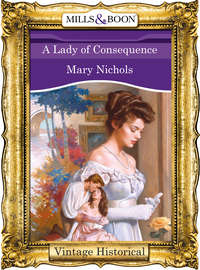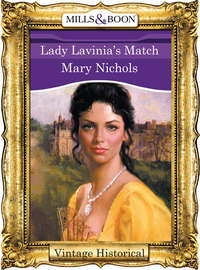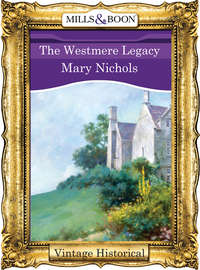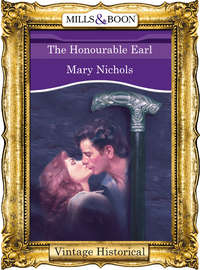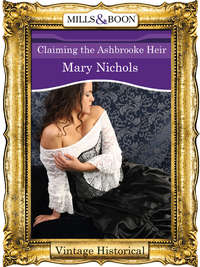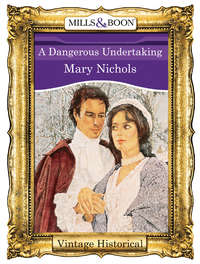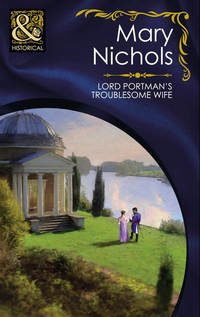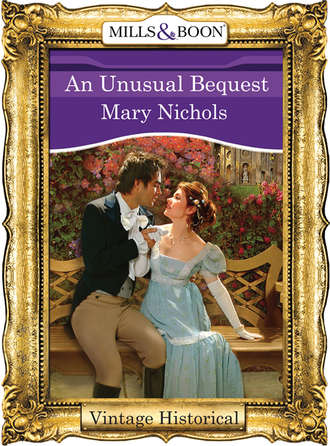
Полная версия
An Unusual Bequest
‘I do not know anything about that, my lord,’ she said quickly ‘But I cannot believe Lord Hobart left you without any means at all.’
‘I am supposed to have made a profit from my time in India.’
‘And did you not?’
‘It must be self-evident that I did not, certainly not enough to sustain the life of a gentleman.’
‘I see. Then should you not postpone your house party until you have improved the estate and made it pay again? I am afraid that when Lord Hobart became ill, it was let run down. But it will reward a little attention.’
‘Do you presume to tell me what to do? No wonder the servants question their orders, when they have the example of the mistress of the house to teach them. But you are the mistress no longer.’ He stopped suddenly and laughed. It was an ugly sound. ‘Unless you would like to take up the role?’ He put out a hand to touch her cheek and she jerked her head away.
‘No, I would not,’ she said and, taking a deep breath, pushed past him and went to the kitchen to see about carrying out his orders. The servants were working, but gone was the cheerful willingness that had been there when the late Lord Hobart was alive and Charlotte had the running of the house. There were frowns and mutterings and she felt they might have been disagreeing among themselves. Such an attitude would not get the work done and she tried to sound cheerful and efficient as she gave them their new orders.
‘How can we do all that?’ Betsy demanded. She was middle-aged, plump and red-haired. She was also the most outspoken; Charlotte guessed it was Betsy who had angered Cecil. ‘Are we to have more staff?’
‘I will ask his lordship,’ she said.
‘He’s bad enough, but those other two…Ugh!’Cook said, banging the dough on the table and sinking her fist into it. This batch of bread would be well kneaded. ‘They send down here, demanding food in the middle of the night, and expect it to appear like magic. Had to get out of my warm bed, I did. And I was hardly asleep again when Betsy came and woke me to be getting breakfast ready.’
‘I am sorry for that, Mrs Evans, I’ll ask the gentlemen to be a little more considerate. Perhaps you could leave something cold on a tray when you go to bed and their own servants can fetch it for them.’ She paused, looking round at them all, some seeming unhappy, some mutinous, the younger ones sniffing tearfully. ‘I know it is difficult getting used to a new master, but we must do our best to keep everything running smoothly.’
‘Oh, we i’n’t blamin’ you, m’ lady,’ Betsy put in. ‘We know it’s as hard for you as ’tis for us.’
Charlotte smiled; perhaps she had allowed them too much freedom to speak their minds, but it was gratifying to know she had their support. If she left, what would happen to them? Could they find other positions if they decided to leave? Would Cecil pay their back wages if they did? She felt responsible for them. She sighed. Perhaps her plans should also include those servants who wanted to come with her, even if it did increase her problems. Oh, if only Cecil would decide he did not like the country after all and leave. But she suspected the death of his father had been fortuitous for him. There were probably others like Sir Roland and Mr Spike who might descend upon him at any time, dunning for debts to be paid. Perhaps one of them had already arrived. But why had he not come straight up to the house? Why skulk in the village? She gave up trying to work it out and went up to the schoolroom.
Lizzie and Fanny were at their lessons but, like the servants, they were unsettled and unable to concentrate. Miss Quinn was nearly as bad; she kept glancing towards the door, as if she expected trouble to walk through it. Charlotte smiled reassuringly. ‘I shall be in my room, if you want me,’ she said. ‘I’ll come and see you again before I go down to dinner.’
‘We won’t have to come down again, will we?’ Lizzie asked.
‘No, now your uncle has met you, I think he is satisfied you are being well cared for.’
She was becoming a liar in her efforts to keep everyone happy. Did that mean she was weak? She went back to her room and sat at her desk where she spent the time before dinner drawing up lists. And then she endured that meal in the company of men who would never have been entertained by the late Lord Hobart and afterwards left them to their drinking and retired to her own room. It was not as comfortable nor as well appointed as the one she was used to, but at least it was away from the guest rooms and near her children. She felt as if she had been relegated to the status of a servant and fervently prayed Mr Hardacre would help her to do something about it.
He was talking to the Reverend Fuller when she arrived in the church the following morning, but as soon she appeared, the Reverend bade her good morning and left them.
‘I am sorry to keep you in Parson’s End longer than you intended,’ she told the lawyer. She was dressed in her usual mourning silk, over which she had put her black wool cloak; even though it was late March, the days were still not warm enough to dispense with it and, here in this quiet village, fashion seemed not to matter; other things were more important. ‘But I am in something of a quandary.’
‘I think I understand.’
‘You do?’ She sat in one of the pews and motioned him to sit too.
‘I cannot imagine that you want to stay at Easterley Manor. It was once such a happy home when Lady Hobart was alive and the boys were young…’
‘It was still so until quite recently,’ she said. ‘My father-in-law’s passing changed everything. I do not think I shall be able to deal comfortably with the new Lord Hobart. We do not view things in quite the same way. And I understand he is planning to marry.’ She was trying to put it diplomatically. Lord Hobart was his client; it would not help to complain of his behaviour. ‘I must make other arrangements.’
‘What had you in mind?’
‘A school. If I had a house large enough to turn into a small school, where I could take fee-paying young ladies—’
‘But, my dear Lady Hobart, how can you contemplate such a thing? Your husband was a baronet in his own right and you come from a noble family—such a thing is hardly fitting.’
‘I enjoy teaching.’
‘I am sure you do and the Reverend has been telling me all about your work among the children, but teaching them as an act of charity is not the same as asking to be paid for it.’
She gave a strangled laugh. ‘You sound like Cecil, as if the very mention of the word money is a profanity. Unfortunately it is a necessary evil, especially when you do not have any.’
‘Surely it is not as bad as that? Is there no one?’
‘No one,’ she said firmly, dismissing the idea of applying to Lord Falconer as impractical. ‘When Sir Grenville died, I was bereft and leaned very heavily on Lord Hobart. He was a kind man, he knew I had to do things my way, and so he allowed me all the freedom I wanted. It was as if Grenville had already become master of Easterley Manor and I, as his widow, was carrying on. Lord Hobart kept in the background, happy to have his grandchildren about him. I and my children have lost all that.’ She blinked rapidly, trying to prevent the tears falling.
‘I see,’ he said, though she was not at all sure that he did.
‘Then are you able to help me?’
‘To find you a school?’
‘More than that. To lend me the money to set it up.’
‘Oh.’ He looked startled. ‘You meant it when you said you had no money?’
‘I have three guineas and some smaller change. And some of that must go to pay the doctor for the treatment he gave one of my little pupils yesterday.’
He was shocked. ‘My lady, I had no idea. How can that be? You had the portion Sir Grenville settled on you when you married. I know it was not much, but he never expected to die so young and, in any case, he knew his father would look after you.’
‘I had no idea I ought to save it, Mr Hardacre. I spent it on things for the village school: slates, chalk, books, and clothes and medicines for any who needed them. They have so little and since the war their plight has become worse and worse. I often think it would do those who make the laws in this country a great deal of good to have to live among its people. They might learn the meaning of true poverty.’ She paused and drew a deep breath before going on. ‘That’s as may be. What I had has gone.’
‘I am appalled. Your daughters…’
‘They want for nothing at the moment, but they are not happy at the Manor now and I must find a way to provide for them.’
‘But you would need collateral if I am to approach a bank on your behalf.’
‘I have none.’ She paused. ‘I have a little jewellery: the pearls my father gave me on my come-out, an emerald necklace that was a present from my husband to mark our betrothal and the two little brooches, one of amethysts, the other of garnets, that he gave me on the birth of our daughters. I have no idea of their worth; I never thought of them as assets, but as keepsakes.’
‘My dear Lady Hobart, surely it has not come to such a pass?’
‘I am sorry, I have embarrassed you, but, believe me, it is no greater than the embarrassment I feel being obliged to ask.’
‘Do not think of it.’ He looked thoughtful for a moment. She must certainly be helped to leave Easterley Manor and whether she went ahead with her school idea or not, she needed money. Cecil Hobart would never provide her with any. ‘As you know, Lord Hobart left money in trust for your daughters,’ he said slowly. ‘It was intended to be for their come-out and dowries and any expenditure the trustees felt necessary for their well-being. I think such an occasion has arisen. I will put it to them and let you know what they say. How much do you think you will need?’
‘It depends how much I have to pay to rent a house, and how long before fee-paying pupils arrive, but I have worked out some rough figures.’ She took two folded sheets of paper from her reticule and handed them to him. ‘Do you think the trustees will agree?’
‘When I put the position to them, I think they will. The welfare of your daughters must come before all other considerations and their welfare is not best served living at Easterley Manor.’ It was as near as he was going to go to admitting he knew what Cecil was like. ‘Can you sit tight for a week or two until you hear from me?’
‘Yes. I am not a child, Mr Hardacre, I can stand up for myself, and there are plenty of good, kind people up at the house to keep an eye on the girls, though I rarely let them out of my sight.’ She paused. ‘May I begin looking for a house?’
‘Yes, I see no reason why you should not. But you will not be able to sign a lease or anything like that, not until I have obtained the consent of the trustees.’
‘I understand.’
Конец ознакомительного фрагмента.
Текст предоставлен ООО «ЛитРес».
Прочитайте эту книгу целиком, купив полную легальную версию на ЛитРес.
Безопасно оплатить книгу можно банковской картой Visa, MasterCard, Maestro, со счета мобильного телефона, с платежного терминала, в салоне МТС или Связной, через PayPal, WebMoney, Яндекс.Деньги, QIWI Кошелек, бонусными картами или другим удобным Вам способом.


